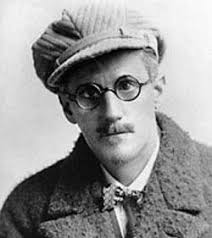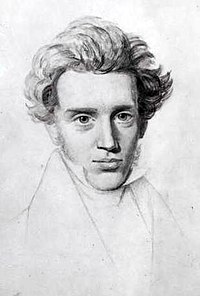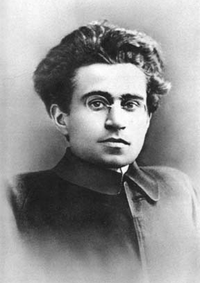Monday, March 29, 2010
Gnome by Samuel Beckett
Courage for the years of wandering
Through a world politely turning
From the loutishness of learning.
-------
Editor's note from the Selected Poems(1930-1989): 'Gnosis' = Knowledge in Ancient Greek
Prelude by Derek Walcott
I, with legs crossed along the daylight, watch
The variegated fists of clouds that gather over
The uncouth features of this, my prone island.
Meanwhile, the steamers which divide horizons prove
Us lost;
Found only
In tourist booklets, behind ardent binoculars;
Found in the blue reflection of eyes
That have known cities and think us here happy.
Time creeps over the patient who are too long patient,
So I, who have made one choice,
Discover that my boyhood has gone over.
And my life, too early of course for the profound cigarette,
The turned doorhandle, the knife turning
In the bowels of the hours, must not be made public
Until I have learnt to suffer
In accurate iambics.
I go, of course, through all the isolated acts,
Make a holiday of situations,
Straighten my tie and fix important jaws,
And note the living images
Of flesh that saunter through the eye.
Until from all I turn to think how,
In the middle of the journey through my life,
O how I came upon you, my
Reluctant leopard of the slow eyes.
Saturday, March 27, 2010
WV Quine Quote
develops and changes, through more or less arbitary and deliberate
revisions and additions of our own, more or less directly occasioned
by the continuing stimulations of our sense organs. It is a pale grey
lore black with fact and white with convention but i have found no
substantial reasons that there are any quite black threads in it, or
any white ones"
wiki
2 from Ulysses by James Joyce

MR Leopold Bloom ate with relish the inner organs of beasts and
fowls. He liked thick giblet soup, nutty gizzards, a stuffed roast heart,
liverslices fried with crustcrumbs, fried hencods' roes. Most of all he liked
grilled mutton kidneys which gave to his palate a fine tang of faintly scented
urine.
Kidneys were in his mind as he moved about the kitchen softly,
righting her breakfast things on the humpy tray. Gelid light and air were in
the kitchen but out of doors gentle summer morning everywhere. Made him
feel a bit peckish.
link
--
..how he kissed me under the Moorish wall and I thought well as well him as another and then I asked him with my eyes to ask again yes and then he
asked me would I yes to say yes my mountain flower and first I put my
arms around him yes and drew him down to me so he could feel my breasts
all perfume yes and his heart was going like mad and yes I said yes I will
Yes.
link
from Finnegan's Wake

A way a lone a last a loved a long the / riverrun, past Eve and Adam's, from swerve of shore to bend of bay, brings us by a commodius vicus of recirculation back to Howth Castle and Environs.
Finnegan's Web
Finnegan's Wake Wiki
Ouroboros Wiki
"The living being had no need of eyes when there was nothing remaining outside him to be seen; nor of ears when there was nothing to be heard; and there was no surrounding atmosphere to be breathed; nor would there have been any use of organs by the help of which he might receive his food or get rid of what he had already digested, since there was nothing which went from him or came into him: for there was nothing beside him. Of design he was created thus, his own waste providing his own food, and all that he did or suffered taking place in and by himself. For the Creator conceived that a being which was self-sufficient would be far more excellent than one which lacked anything; and, as he had no need to take anything or defend himself against any one, the Creator did not think it necessary to bestow upon him hands: nor had he any need of feet, nor of the whole apparatus of walking; but the movement suited to his spherical form was assigned to him, being of all the seven that which is most appropriate to mind and intelligence; and he was made to move in the same manner and on the same spot, within his own limits revolving in a circle. All the other six motions were taken away from him, and he was made not to partake of their deviations. And as this circular movement required no feet, the universe was created without legs and without feet." from Plato's Timaeus
Sunday, March 21, 2010
Tractatus by Derek Mahon
Saturday, March 20, 2010
Thomas Paine from Common Sense
Setting The Type by Greg Delanty
& hold it to a haze of men
bowed over the jigsaw puzzles of galley trays.
You confer with Dan Hannigan.
I wonder at the results of a half century
of nicotine on his right index finger.
Through zig-zag bars of an old-fashioned elevator
I have just spotted the ascending head
& Humpty-Dumpty body of Donnie Conroy.
He will be broken by drink
& his daughter's death.
Her face is now smiling from his desk.
You turn & escort me to the letterpress.
Mr. Lane punches my name into shiny lead
& declares hereafer it is eternal.
The names of Dan Hannigan, Owen Lane, Donnie Conroy-
I could go on forever invoking the dead-
were set deep in a boy
impressed by the common raised type on the 3rd floor
of Eagle Printing Company, 15 Oliver Plunkett Street,
in the summer-still, ticking heart of Cork City.
Wednesday, March 17, 2010
6 from Heraclitus
"Time is a game played beautifully by children."
"This universe, which is the same for all, has not been made by any god or man, but it always has been, is, and will be an ever-living fire, kindling itself by regular measures and going out by regular measures."
"You could not step twice into the same river; for other waters are ever flowing on to you."
"Character is destiny"
"Nothing endures but change."
---
via wikiquote
from Fear and Trembling by Sören Kierkegaard

"If there were no eternal consciousness in a man, if at the foundation of all there lay only a wildly seething power which writhing with obscure passions produced everything that is great and everything that is insignificant, if a bottomless void never satiated lay hidden beneath all -- what then would life be but despair? If such were the case, if there were no sacred bond which united mankind, if one generation arose after another like the leafage in the forest, if the one generation replaced the other like the song of birds in the forest, if the human race passed through the world as the ship goes through the sea, like the wind through the desert, a thoughtless and fruitless activity, if an eternal oblivion were always lurking hungrily for its prey and there was no power strong enough to wrest it from its maw -- how empty then and comfortless life would be!"
from Fear and Trembling
wiki: http://en.wikipedia.org/wiki/S%C3%B6ren_Kierkegaard
Sunday, March 14, 2010
The Beatitudes
40:005:001 And seeing the multitudes, he went up into a mountain: and
when he was set, his disciples came unto him:
40:005:002 And he opened his mouth, and taught them, saying,
40:005:003 Blessed are the poor in spirit: for theirs is the kingdom of
heaven.
40:005:004 Blessed are they that mourn: for they shall be comforted.
40:005:005 Blessed are the meek: for they shall inherit the earth.
40:005:006 Blessed are they which do hunger and thirst after
righteousness: for they shall be filled.
40:005:007 Blessed are the merciful: for they shall obtain mercy.
40:005:008 Blessed are the pure in heart: for they shall see God.
40:005:009 Blessed are the peacemakers: for they shall be called the
children of God.
40:005:010 Blessed are they which are persecuted for righteousness' sake:
for theirs is the kingdom of heaven.
40:005:011 Blessed are ye, when men shall revile you, and persecute you,
and shall say all manner of evil against you falsely, for my
sake.
40:005:012 Rejoice, and be exceeding glad: for great is your reward in
heaven: for so persecuted they the prophets which were before
you.
40:005:013 Ye are the salt of the earth: but if the salt have lost his
savour, wherewith shall it be salted? it is thenceforth good
for nothing, but to be cast out, and to be trodden under foot
of men.
40:005:014 Ye are the light of the world. A city that is set on an hill
cannot be hid.
40:005:015 Neither do men light a candle, and put it under a bushel, but
on a candlestick; and it giveth light unto all that are in the
house.
40:005:016 Let your light so shine before men, that they may see your
good works, and glorify your Father which is in heaven.
--
from the project guthenberg King James Bible
Thursday, March 11, 2010
Drowning In Co. Down by Robin Robertson
The land rots houses just to
get them out of the way, get closer
to the heavy sky.
People drink all day if they can,
the water-table their only gravity.
If they drift away they come back
thirsty, missing the pints, that
loose decay of light;
scuttling their ships
in the usual harbours, growing old
watching the water rise,
their options narrowing
to this country town,
this bar, these optics,
a whiskey glass,
the softened mouth
of this swollen ground.
----
from Swithering
Wednesday, March 10, 2010
Raoul Vaneigem quote
see http://www.nothingness.org/SI/vaneigem.html for more
found through the guardian, very interesting article
Howard Zinn on Education and Control
.....
In the meantime, the spread of public school education enabled the learning of writing, reading, and arithmetic for a whole generation of workers, skilled and semiskilled, who would be the literate or force of the new industrial age. It was important that these people learn obedience to authority. A journalist observer of the schools in the 1890s wrote: "The unkindly spirit of the teacher is strikingly apparent; the pupils, being completely subjugated to her will, are silent and motionless, the spiritual atmosphere of the classroom is damp and chilly."
Back in 1859, the desire of mill owners in the town of Lowell that their workers be educated was explained by the secretary of the Massachusetts Board of Education:
"The owners of factories are more concerned than other classes and interests in the intelligence of their laborers. When the latter are well-educated and the former are disposed to deal justly, controversies and strikes can never occur, nor can the minds of the masses be prejudiced by demagogues and controlled by temporary and factious considerations. "
Joel Spring, in his book Education and the Rise of the Corporate State, says: "The development of a factory-like system in the nineteenth-century schoolroom was not accidental."
This continued into the twentieth century, when William Bagley's Classroom Management became a standard teacher training text, reprinted thirty times. Bagley said: "One who studies educational theory aright can see in the mechanical routine of the classroom the educative forces that are slowly transforming the child from a little savage into a creature of law and order, fit for the life of civilized society."
It was in the middle and late nineteenth century that high schools developed as aids to the industrial system, that history was widely required in the curriculum to foster patriotism. Loyalty oaths, teacher certification, and the requirement of citizenship were introduced to control both the educational and the political quality of teachers. Also, in the latter part of the century, school officials-not teachers-were given control over textbooks. Laws passed by the states barred certain kinds of textbooks. Idaho and Montana, for instance, forbade textbooks propagating "political" doctrines, and the Dakota territory ruled that school libraries could not have "partisan political pamphlets or books."
------
from A People's History of The United States
Sunday, March 7, 2010
Gramsci- from The Prison Notebooks

Follow the link.
I'll throw some pertinent extracts up here when I get the chance but the piece I've scanned above is only about 6 pages in any case
Walter Benjamin and the Angel of History

"A Klee painting named ‘Angelus Novus’ shows an angel looking as though he is about to move away from something he is fixedly contemplating. His eyes are staring, his mouth is open, his wings are spread. This is how one pictures the angel of history. His face is turned toward the past. Where we perceive a chain of events, he sees one single catastrophe which keeps piling wreckage upon wreckage and hurls it in front of his feet. The angel would like to stay, awaken the dead, and make whole what has been smashed. But a storm is blowing in from Paradise; it has got caught in his wings with such violence that the angel can no longer close them. This storm irresistibly propels him into the future to which his back is turned, while the pile of debris before him grows skyward. This storm is what we call progress. "
from On The Conept of History.
----
This came to mind when watching Truffaut's Jules Et Jim at the Cork French Film Festival
Friday, March 5, 2010
Last Meeting by Gwen Harwood
Last Meeting
Shadows grazing eastward melt
from their vast sun-driven flocks
into consubstantial dusk.
A snow wind flosses the bleak rocks,
strips from the gums their rags of bark,
and spins the coil of winter tight
round our last meeting as we walk
the littoral zone of day and night,
light's turncoat margin: rocks and trees
dissolve in nightfall-eddying waters;
tumbling whorls of cloud disclose
the cold eyes of the sea-god's daughters.
We tread the wrack of grass that once
a silver-bearded congregation
whispered about our foolish love.
Your voice in calm annunciation
from the dry eminence of thought
rings with astringent melancholy:
'Could hope recall, or wish prolong
the vanished violence of folly?
Minute by minute summer died;
time's horny skeletons have built
this reef on which our love lies wrecked.
Our hearts drown in their cardinal guilt.'
The world, said Ludwig Wittgenstein,
is everything that is the case.
- The warmth of human lips and thighs;
the lifeless cold of outer space;
above, a watercourse of light;
the piercing absence of one face
withdrawn for ever from my sight.
----
from the guardian


